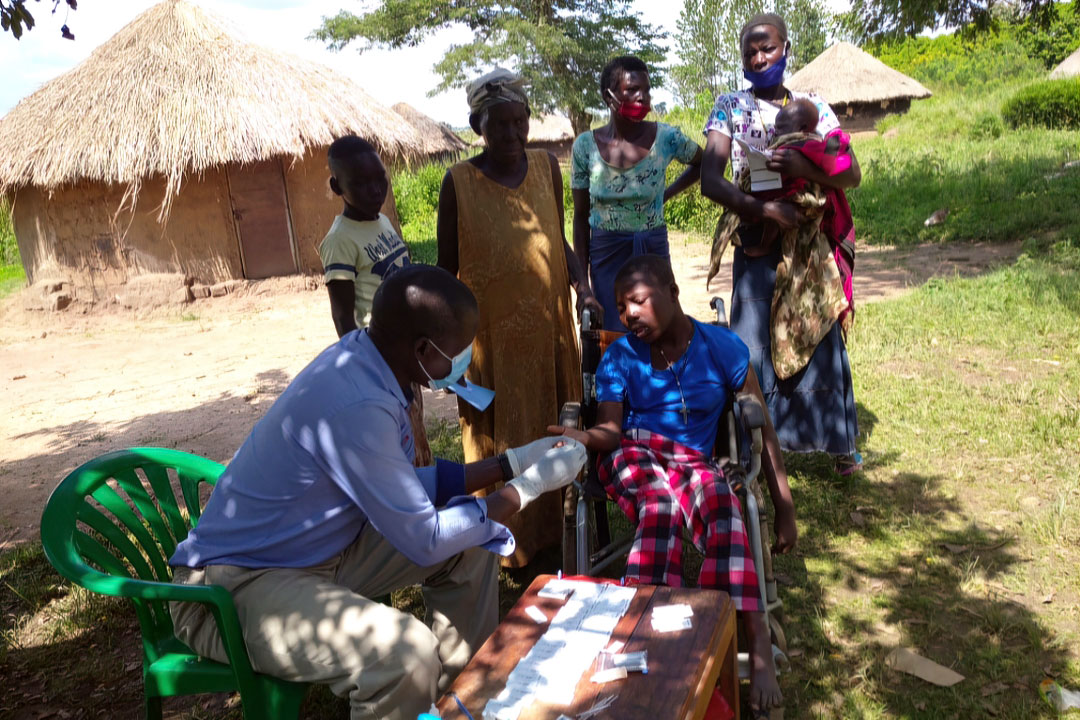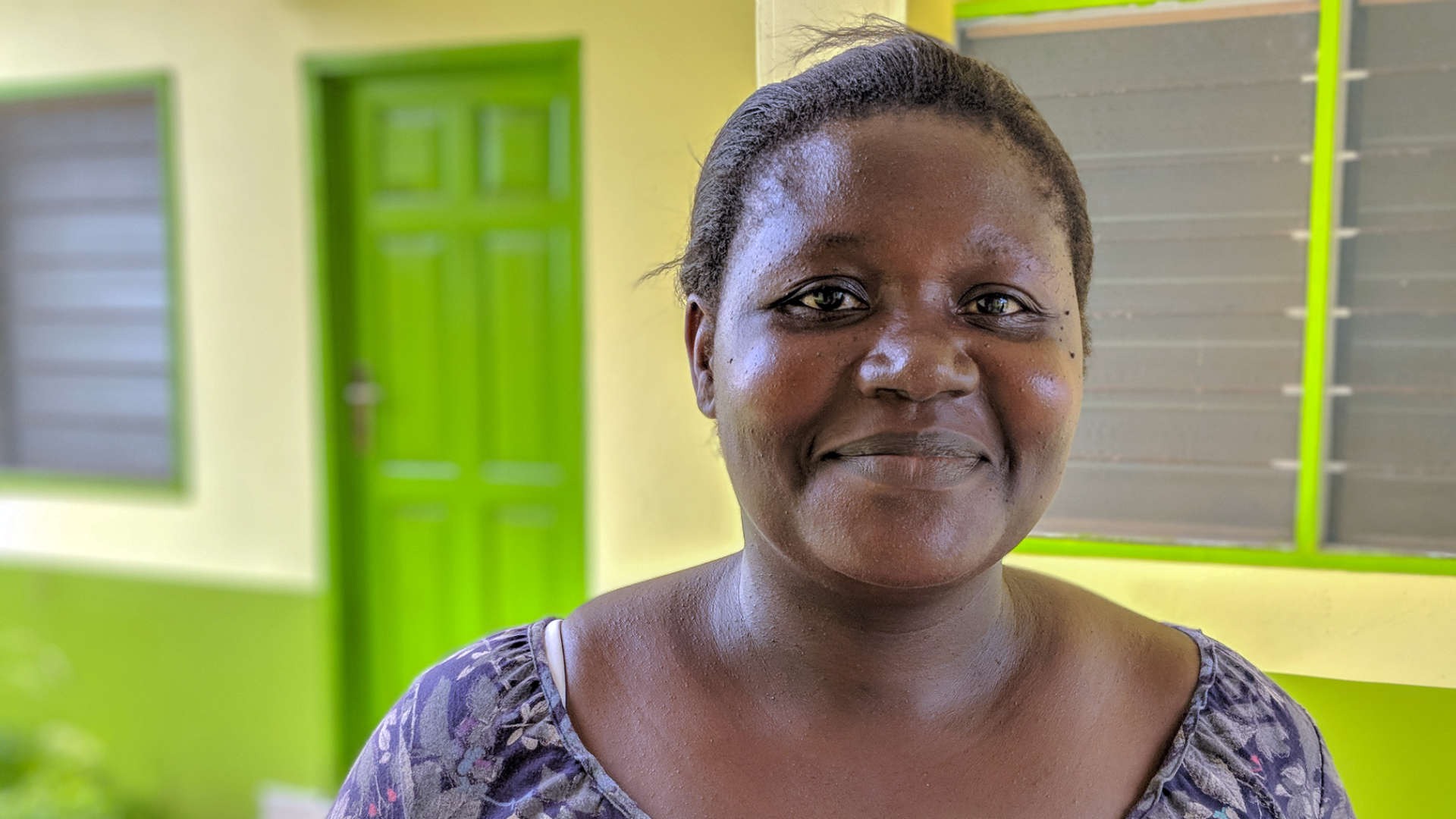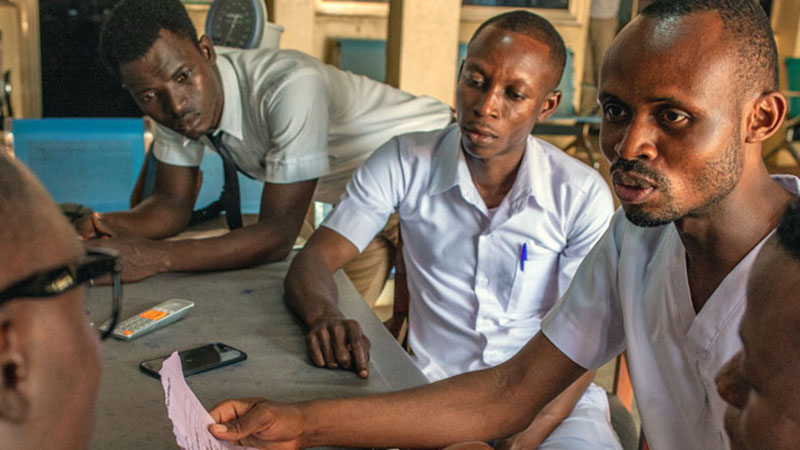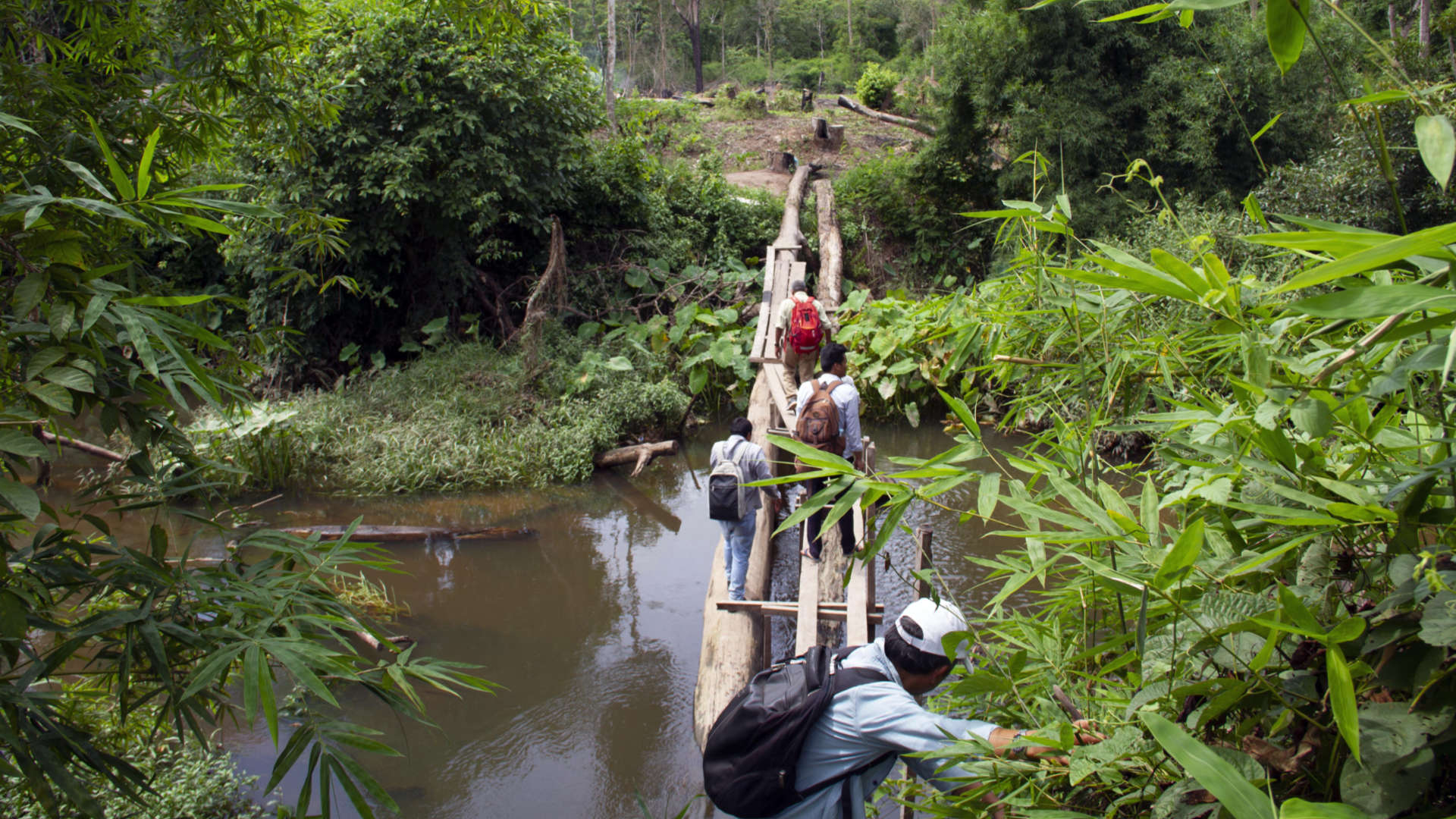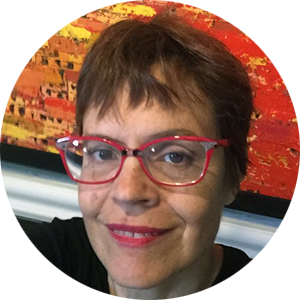
Laura McGough
Senior Technical Advisor, Center for Technical Excellence
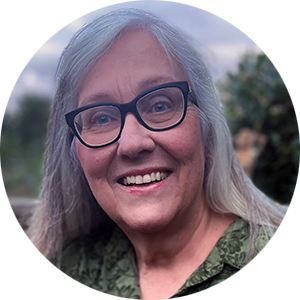
Diana Chamrad, Ph.D.
Senior Technical Advisor, Vulnerable Children and Families, Mental Health
URC welcomes the launch of the new WHO Global report on health equity for persons with disabilities on December 2, 2022. To highlight the release of the report and the importance of disability-inclusive approaches in global health programs, URC hosted an engaging webinar for the CORE Group’s Disability Inclusive Health Technical Advisory Group. The webinar, led by persons with disabilities, drew attention to the experience of having invisible – or less visible – disabilities, and being denied necessary services and support.
At least 16% of the world’s population – 1.4 billion people – live with one or more disabilities, according to the report and face worse health outcomes than those living without disabilities. What the report shows, however, is that the underlying impairment itself is not primarily responsible for the poorer health outcomes. Instead, the primary driver is the barriers that societies impose that limit access and delivery of health services.
“This report is critically important. Too often, we as a global community ignore the needs of persons with disabilities assuming that their problems are due to the impairments themselves. Especially in under-resourced health systems, health workers can feel overwhelmed. As the report shows, however, there are achievable things we can do to make health services accessible for people with disabilities. The report provides evidence for what we at URC have been advocating for – disability inclusive health systems,” says URC Senior Technical Advisor Laura McGough, who serves as the CORE Group’s Co-Chair of the Disability-Inclusive Health Technical Advisory Group.
Identifying Barriers to Care
At URC, we think about disabilities in the context of inclusive health and access to care for all – especially marginalized groups. We know that disabilities, coupled with intersectional vulnerabilities such as gender, age, marital status, race, and migratory status, can multiply the risk of poor health outcomes for persons with disabilities. And we’ve been advocating for the inclusion of those with disabilities in health systems for some time.
As the WHO report aptly emphasizes, it is important to identify barriers to care for people with disabilities through a comprehensive review of the societal and health care obstacles adversely impacting their health vis a vis their ability to access appropriate care.
These barriers to assess health services can consist of communication barriers, physical barriers, economic and transportation barriers, as well as social barriers including stigma that impact a person’s autonomy over health care decision making.
Early Detection of Disabilities Essential to Service Uptake
From our experience supporting Ministries of Health across Latin America and the Caribbean through the global USAID Applying Science to Strengthen and Improve Systems (ASSIST) Project’s Zika interventions, we learned the importance of early diagnosis of invisible – or less visible – disabilities to fully capture persons in need of disability inclusive health services.
Babies whose mothers had contracted the Zika virus during their pregnancies sometimes presented with microcephaly that was easily noted at birth. But many babies who were affected prenatally presented with much more subtle neurodevelopmental problems that were not being identified by health care providers.
URC partnered with the American Academy of Pediatrics to develop tools for providers to accurately screen for developmental delays based on expected milestones. Early identification of a disability is critical to maximizing the potential of a child.
While training health care providers including midwives, nurses, and doctors, on how to assess developmental milestones, the project covered in depth how to provide psychosocial support to all mothers, their partners, children, and family members.
As Diana Chamrad, a URC Senior Technical Advisor and clinical psychologist leading the psychosocial support trainings comments, “I remember at one training workshop a midwife described how parents were unwilling to take public transport to their health appointments because of the negative and stigmatizing comments they would hear about their baby’s obvious physical anomalies on the way. The impact of social stigma can be a serious barrier to seeking care for children with disabilities.”
Meaningful Partnerships with Persons with Disabilities
WHO’s report highlights the importance of augmenting the voices of persons with disabilities throughout the program cycle. Their on-going and meaningful involvement in decision making ensures services adequately consider their needs – and that barriers to health services are successfully removed.
Through the USAID Keneya Nieta Activity in Mali, URC supports health-focused committees at the community level where community members plan, lead, and oversee local health services and health promotion activities. To drive disability-inclusive health services, URC ensures that persons with disabilities are members of these community health platforms. Many have taken leadership positions on their respective committees and are driving change in key areas including improved nutrition and water, sanitation, and hygiene practices.
Reimagining the Future of Care for Persons with Disabilities
The WHO report is a significant step towards achieving universal health care and well-being for all. Moving towards disability inclusive services requires a bidirectional investment in the health of persons with disabilities. An investment in policy and advocacy support from WHO and others, working in tandem with implementers to adapt the recommended actions.
That way, we aren’t just reimagining the future of care for persons with disabilities. We’re enabling it.
